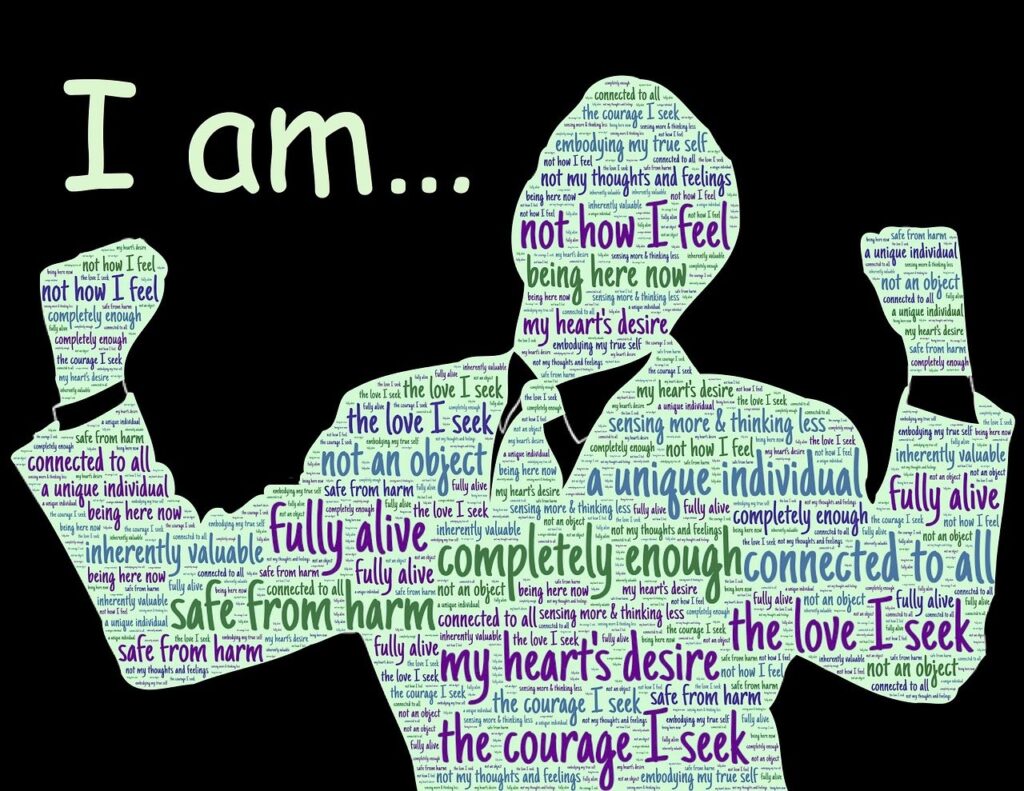
Introduction
It is crucial to prioritize mental well-being as we navigate through the challenges of daily life. One powerful tool to achieve this is by cultivating a positive self-identity. A healthy self-image can have a profound impact on cognitive function and overall mental well-being. It is essential to tap into our inner reservoir of strength and resilience to cope with difficult situations and maintain a positive outlook.
The Connection between Self-Identity and Cognitive functions.
Our self-identity is the perception we hold of ourselves, encompassing our beliefs, values, abilities, and experiences. Our beliefs, values, abilities, and experiences are cultivated over the course of our lives through a combination of various factors such as upbringing, education, social interactions, personal reflections, and exposure to different environments and cultures. They develop and evolve from early childhood through adolescence and into adulthood, influenced by our family, friends, teachers, society, and personal experiences. It’s a dynamic process that continues throughout our lives as we learn, grow, and adapt to new circumstances and perspectives.
There are a number of studies done to establish the relationship between self-identity and cognitive functions:
Habits and identity: There are a number of studies done for associations between habits and identity and found that habits may serve to define who we are, particularly when they are considered in the context of self-related goals or central values. The studies also found that habit-identity associations were stronger if participants explicitly generated the habit and true self-ratings while indicating which values the behaviors would serve. These findings suggest that habits may be an important aspect of self-identity and may influence cognitive function.
Thinking dispositions and identity: A study addressed the relationship between the sense of personal identity and thinking dispositions such as need for cognition, reflection, and integrative self-knowledge, as well as modes of coping with self-related discrepancies through either excessive assimilation or accommodation. The study found that need for cognition and integrative self-knowledge positively influenced one’s sense of identity, while over-responsiveness to discrepant information about the self-influenced it negatively. These findings suggest that cognitive-motivational variables are important in the development and maintenance of a sense of identity, which in turn may influence cognitive function.
This internal narrative shapes the way we view the world and, importantly, how we approach challenges. Studies have shown that a positive self-identity can lead to improved cognitive function in various ways:
Enhanced Confidence and Decision-Making: When individuals have a positive self-identity, they tend to be more confident in their abilities. This confidence translates into better decision-making skills, as they trust themselves to make choices that align with their goals and values.
Reduced Stress and Anxiety: A positive self-identity acts as a buffer against stress and anxiety. When we have a strong sense of self-worth, we are less likely to be overwhelmed by external pressures, allowing for clearer thinking and problem-solving.
Increased Resilience: Cultivating a positive self-identity fosters resilience in the face of adversity. Individuals with a healthy self-image are more likely to view setbacks as opportunities for growth, rather than insurmountable obstacles.
Techniques for Cultivating a Positive Self-Identity
Practice Self-Compassion: Treat yourself with the same kindness and understanding that you would offer to a close friend. Recognize that imperfections are a natural part of being human and that they do not diminish your worth.
Celebrate Achievements, Big or Small: Take time to acknowledge your accomplishments, no matter how minor they may seem. This reinforces a positive self-image and helps build confidence in your abilities.
Challenge Negative Self-Talk: Pay attention to the way you speak to yourself. Replace self-criticism with constructive, supportive language. For example, instead of saying, “I can’t do this,” try saying, “I may face challenges, but I have the skills to overcome them.”
Set Realistic Goals: Setting achievable goals provides a sense of purpose and accomplishment. Celebrate your progress along the way and use each success as a building block for your self-identity.
Seek Feedback and Accept Compliments: Embrace feedback as an opportunity for growth, and accept compliments graciously. Recognize that others see value in you, and let that contribute to your self-identity.




